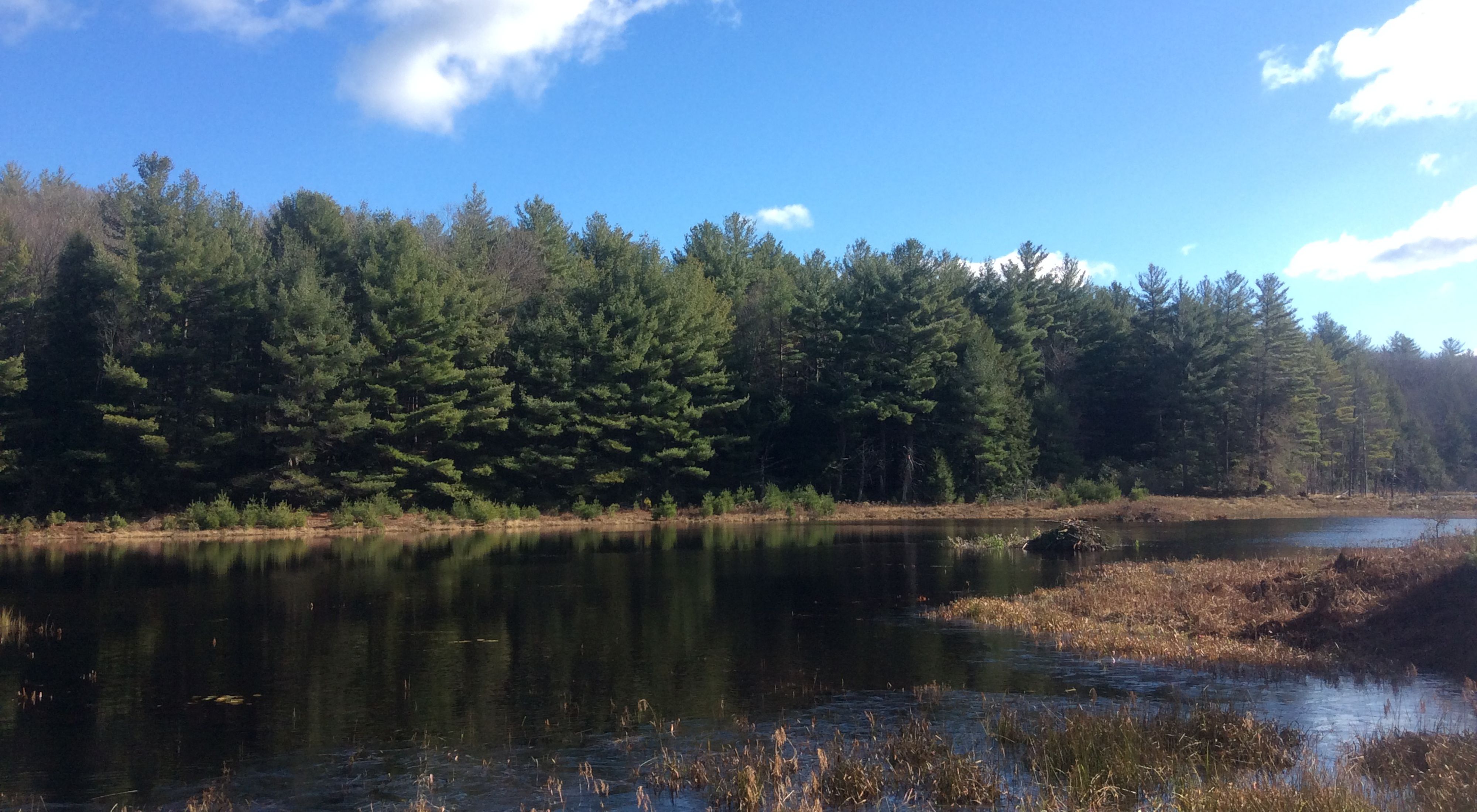The Nature Conservancy Announces New Land Donations in Northwest Connecticut
Recently completed deals will protect the forests in a vital region of the state
Media Contacts
-
Alex Armstrong
Director of Marketing and Communications
The Nature Conservancy in Connecticut
Email: alex.armstrong@TNC.org
WINCHESTER AND CANAAN, CONN. – Today, The Nature Conservancy in Connecticut (TNC in CT) announced two land deals, completed late last year, that will expand protections for critical lands in northwest Connecticut, an area of high ecological importance.
The donations are part of what TNC scientists have labeled the “Resilient and Connected Network”—lands across North America with limited human disturbance, robust microclimates that can withstand climate change, and linkages to other sites in the network. Mapping out these habitats and the natural pathways among them shows where plants and animals have the best chances to find new places to call home.
In Connecticut's northwest corner, the Berkshire Wildlife Linkage serves as a critical corridor of the Appalachian Mountains and includes the most intact forest ecosystems in southern New England and some of its highest carbon stocks. The Appalachians are a migration pathway and breeding habitat for migratory birds and many wide-ranging and iconic mammals; black bear, bobcat, fisher and moose all move through the landscape. Indeed, because of the Appalachians’ rich variety of species, natural resiliency and diverse communities and cultures, The Nature Conservancy has placed the region alongside the Amazon Rainforest and the Kenyan grasslands as one of the most globally important landscapes for tackling climate change and protecting plant and animal life.
“The communities of Northwest Connecticut have a long tradition of embracing land conservation,” said TNC in CT state director Dr. Frogard Ryan. “Working with individuals, partners, and communities, TNC in CT has spent the last several months identifying the best opportunities for land protection in the region. We are thrilled to announce these new land donations, which will help us protect Northwest Connecticut’s important forest and wetlands habitats.”
Holley Atkinson and Stephen Plumlee donated 330 acres of land in Winchester, which will more than double the size of the existing Silas Hall Pond Preserve and contribute to TNC’s ongoing work in the Berkshire Wildlife Linkage.
“This gift expands a protected area that was initially created through donations from an earlier generation of the family,” said Dr. Ryan. “We thank Holley Atkinson and Stephen Plumlee for their multigenerational dedication to land protection and The Nature Conservancy in Connecticut.”
“Silas Hall Pond Preserve is part of our family legacy, and we were inspired to learn of its newly recognized regional importance to the Berkshire Wildlife Linkage corridor. We’re happy to be able to significantly contribute to its expansion,” said Holley Atkinson and Stephen Plumlee. “The Nature Conservancy of Connecticut has been a reliable steward and we are eager to continue this partnership to preserve the forests and watersheds of Connecticut and the plants and animals that live here.”
Silas Hall Pond Preserve is part of a large network of open space, including Winchester town watershed land, land trust and other privately protected land, and Algonquin State Forest. A unanimous town vote in Spring 2022 approved protecting 1,300 acres of Winchester’s municipal water company land in the area with easements funded through the Highlands Conservation Act and the Housatonic Valley Association’s Greenprint Partners Pledge Fund. It is expected to close by January 2024. Silas Hall Pond Preserve is open to the public for hiking and underwent a significant trail expansion in 2018.
TNC in CT also announced that Julia Wilson and Eric Wilson had donated 16 acres in Canaan to expand Wangum Lake Brook Preserve, where TNC has already protected 435 acres (through a combination of ownership and easements). The preserve is close to an extensive complex of more than 7,000 acres of protected land that includes Housatonic State Forest, Canaan Mountain, Robbins Swamp, and TNC in CT’s Hollenbeck Preserve, among others.
“It just felt right to make this donation,” said Julia Wilson and Eric Wilson. Their gift was made in honor of Julia’s father, John Sheldon Sinclair, and his mother, Laura Louise Foster, whose land donations first created the preserve. “This area deserves to be protected and maintained alongside the land donated by our predecessors.”
“We offer our gratitude to Julia and Eric Wilson for their donation,” said Dr. Ryan. “Three generations have worked to help TNC in CT protect these lands, and their latest donation will help us expand protections in a key, climate-resilient region as we prepare for a warmer world.”
--
The Nature Conservancy (TNC) is a global conservation organization dedicated to conserving the lands and waters on which all life depends. Guided by science, TNC creates innovative, on-the-ground solutions to our world's toughest challenges so that nature and people can thrive together. TNC is tackling climate change, conserving lands, waters and oceans at an unprecedented scale, providing food and water sustainably and helping make cities more sustainable. TNC’s Connecticut chapter has protected more than 53,000 acres of land and is engaging with communities throughout the state to help build and conserve a more resilient, livable world.
To learn more, visit www.nature.org/CT or follow us on Facebook, Twitter, and Instagram.
The Nature Conservancy is a global conservation organization dedicated to conserving the lands and waters on which all life depends. Guided by science, we create innovative, on-the-ground solutions to our world’s toughest challenges so that nature and people can thrive together. We are tackling climate change, conserving lands, waters and oceans at an unprecedented scale, providing food and water sustainably and helping make cities more sustainable. The Nature Conservancy is working to make a lasting difference around the world in 81 countries and territories (40 by direct conservation impact and 41 through partners) through a collaborative approach that engages local communities, governments, the private sector, and other partners. To learn more, visit nature.org or follow @nature_press on X.
